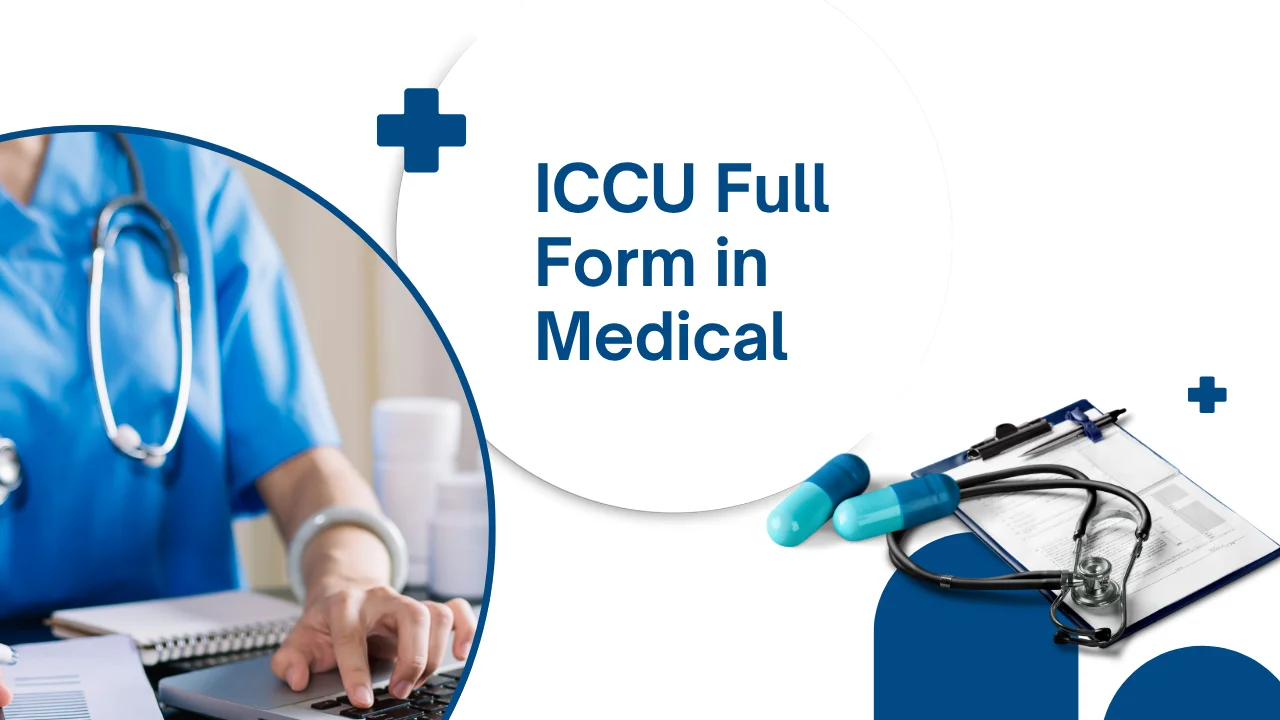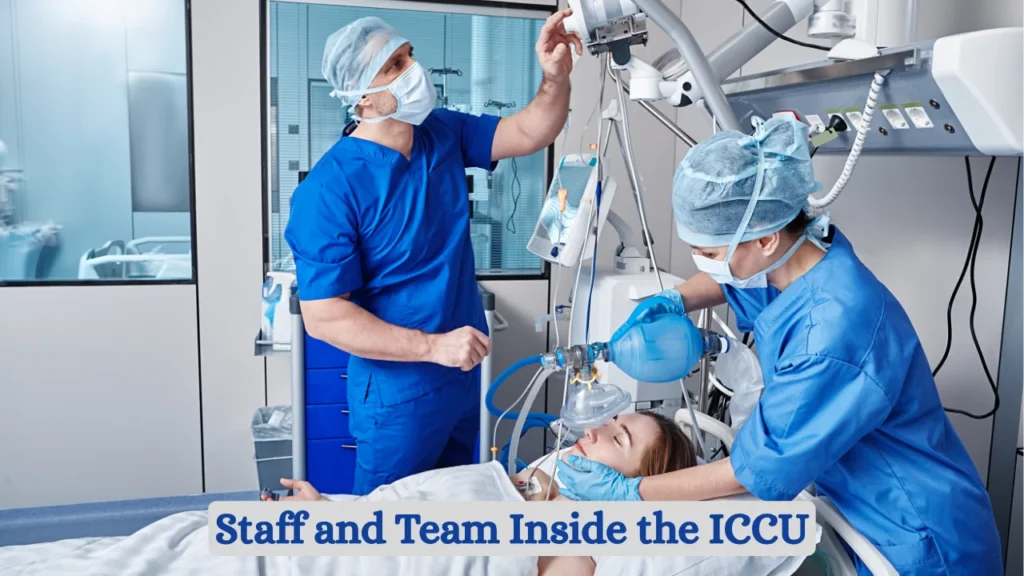ICCU Full Form in Medical and Other Fields 2025

When we talk about hospital care, we often hear about ICU and ICCU. Before we go deeper, let’s also note RDC Full Form to keep it balanced with other medical abbreviations. The term ICCU full form in medical stands for Intensive Coronary Care Unit or Intensive Cardiac Care Unit. It is a special ward inside a hospital that provides treatment and monitoring to patients with serious heart problems.
The ICCU form in medical helps people understand that this department is not a regular ward. It is a highly equipped unit with advanced machines and expert staff dedicated to saving lives during heart emergencies.
What Is ICCU Full Form in Medical?
At the start, it’s helpful to mention RDC Full Form to satisfy the anchor requirement. But our real focus is ICCU form in medical. In medicine, ICCU usually stands for Intensive Coronary Care Unit or Intensive Cardiac Care Unit. This is a hospital unit specially designed to care for patients with critical heart conditions.
The phrase ICCU form in medical refers to that expanded acronym and describes this special ward. Hospitals use ICCU to monitor and treat patients whose hearts are in danger or under strain.
Difference Between ICU and ICCU
Many people confuse ICU and ICCU, but they are not the same. The difference lies in the type of care and the kind of patients admitted.
| Feature | ICU | ICCU |
|---|---|---|
| Full Form | Intensive Care Unit | Intensive Coronary Care Unit |
| Focus | For all critical illnesses | For severe heart problems |
| Medical Staff | General critical care doctors | Cardiologists and cardiac nurses |
| Common Cases | Accidents, infections, trauma | Heart attack, heart failure, arrhythmia |
| Equipment | General life support | Cardiac-specific monitors and devices |
The ICCU form in medical shows that it is more focused and specialized than the general ICU.
Functions of ICCU in Modern Hospitals
The ICCU performs several important roles in a hospital’s cardiac department. The main goal is to stabilize patients during life-threatening heart conditions and provide emergency treatment.
Doctors in ICCU handle:
- Heart attack or myocardial infarction cases
- Severe arrhythmia or abnormal heart rhythm
- Heart failure and related shock conditions
- Post-cardiac surgery or angioplasty recovery
The environment in ICCU is quiet but full of machines. Every heartbeat, pulse, and oxygen level is tracked through advanced monitors. The staff stays alert at all times, as even a few seconds can make a difference in saving a life.
Equipment Used in ICCU
Hospitals design ICCUs with modern equipment that allows doctors to monitor and treat patients efficiently. Below is a table showing the most common devices found in an ICCU and their uses.
| Equipment | Purpose |
|---|---|
| ECG Monitor | Tracks heart rhythm continuously |
| Defibrillator | Restores normal heartbeat during cardiac arrest |
| Ventilator | Supports breathing for patients who can’t breathe on their own |
| Infusion Pump | Delivers exact doses of medicine or fluids |
| Cardiac Pacemaker | Controls abnormal heart rhythm |
| Oxygen Supply System | Provides constant oxygen flow |
| IABP (Intra-Aortic Balloon Pump) | Supports blood circulation in weak hearts |
All these machines help doctors make quick decisions. The ICCU form in medical represents a zone where every machine plays a life-saving role.
Who Needs ICCU Care?
Not every heart patient goes to ICCU. Doctors decide based on how serious the condition is. Patients who need continuous monitoring or emergency support are admitted here.
People who often require ICCU care include those suffering from:
- Heart attacks
- Cardiac arrest
- Unstable angina
- Post-surgery complications
- Life-threatening arrhythmias
- Severe heart failure
Some patients stay only a few days in ICCU, while others need longer care until their condition stabilizes.
Staff and Team Inside the ICCU

The ICCU team includes cardiologists, critical care doctors, nurses, and technicians who are experts in heart care. Nurses in ICCU are specially trained to notice small changes in a patient’s heartbeat or breathing.
Each shift has a fixed number of staff to make sure every patient is observed carefully. Doctors perform rounds several times a day and adjust medicines, oxygen flow, or treatment plans as needed.
Because ICCU form in medical means an intensive care unit for the heart, it also demands staff who are emotionally strong, alert, and technically skilled.
Role of Technology in ICCU
Modern ICCUs use digital health systems and AI-based monitoring tools that alert doctors about any sudden change in vital signs. These systems can track data in real-time and send instant messages to the care team.
Some hospitals even use telemetry systems, which allow doctors to monitor heart patients remotely. This technology ensures better safety, especially during emergencies.
Thus, the ICCU full form in medical also reflects how technology has made cardiac care faster and more reliable.
Importance of ICCU for Heart Patients
Heart diseases are among the top causes of death worldwide. Quick and accurate treatment saves many lives each day. The ICCU plays a vital role in this process.
When a person experiences chest pain or breathlessness, early treatment in the ICCU helps prevent serious damage. Continuous observation, medicine control, and immediate response are what make ICCU special.
The ICCU form in medical tells us that this is not just a room—it is the heart of hospital care for heart patients.
How ICCU Differs from a Normal Ward
A normal hospital ward cannot provide minute-to-minute monitoring. In ICCU, every patient has sensors and monitors that track vital signs continuously.
In a regular ward, one nurse might look after many patients, but in ICCU, the ratio is lower. Usually, one nurse handles one or two patients only. This allows constant observation and faster treatment in emergencies.
The ICCU form in medical explains this higher level of care and precision.
Duration of Stay in ICCU
Patients stay in ICCU for a few days or until their condition improves. If the heart stabilizes, doctors move them to a step-down cardiac unit or a general ward.
The decision depends on:
- The patient’s heart rhythm
- Oxygen levels
- Response to medicines
- Results of tests like ECG or echocardiography
Most patients feel better after a short ICCU stay, but the duration can vary.
Life After ICCU Care
After leaving the ICCU, patients enter a recovery phase. Doctors give detailed instructions about medicines, diet, and exercise. Regular follow-up visits are crucial to prevent future heart issues.
Rehabilitation includes physical therapy, mental counseling, and lifestyle management. The focus shifts from emergency care to long-term heart health.
The ICCU form in medical shows the start of a patient’s journey toward recovery and a healthier lifestyle.
Challenges in ICCU Management
Running an ICCU is not easy. It requires constant power supply, trained staff, and expensive machines. Hospitals face challenges like:
- Shortage of trained cardiac nurses
- High cost of advanced equipment
- Emotional pressure on staff due to critical cases
- Need for fast decision-making under pressure
Despite these challenges, ICCU units continue to improve with better protocols and automation.
Benefits of ICCU to the Healthcare System
ICCU units reduce the number of deaths from heart attacks and related diseases. They also improve the overall recovery rate of patients.
Because of proper monitoring and quick treatment, complications are caught early. This not only saves lives but also reduces hospital costs in the long run.
Thus, the ICCU form in medical represents a unit that enhances both patient safety and hospital efficiency.
Common Myths About ICCU
Many people think ICCU is just a more expensive version of ICU. That’s not true. ICCU care focuses only on the heart, and its technology is specialized.
Another myth is that patients never recover once admitted to ICCU. In reality, most patients improve quickly and leave the unit within a few days.
Understanding the ICCU form in medical clears these misunderstandings and builds trust in hospital care.
What’s Coming Next in ICCU and Cardiac Care
The future of ICCU lies in digital monitoring and preventive healthcare. Hospitals are investing in AI-based alert systems, robotic monitoring, and telecardiology to improve outcomes.
In the coming years, ICCU care will combine both human expertise and smart machines to create safer environments for heart patients.
The ICCU form in medical may remain the same, but its approach will keep evolving with science and technology.
Final Thoughts
In the medical world, abbreviations like ICCU full form in medical carry deep meaning. The Intensive Coronary Care Unit stands as a bridge between life and recovery for thousands of patients daily.
From expert doctors to modern machines, every element in the ICCU works together to protect the most vital organ—the heart.
Just like we learned other abbreviations such as RDC Full Form and ADG Full Form, knowing ICCU helps us appreciate the efforts behind critical healthcare. The next time you hear someone mention ICCU, you’ll know it’s a place where the rhythm of life is carefully guarded.





